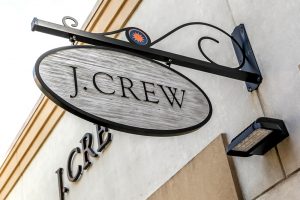Private Equity Takes Care of Its Own
 The creativity displayed by private equity fund managers when snapping up companies and squeezing out profits has apparently evaporated into thin air. The industry claims to have no clue how to help the companies sitting on its books. Most of those businesses are saddled with outsized debts that were heaped onto their balance sheet by owners in a particularly cruel, but perfectly legal, twist that has companies pay for their own acquisition.
The creativity displayed by private equity fund managers when snapping up companies and squeezing out profits has apparently evaporated into thin air. The industry claims to have no clue how to help the companies sitting on its books. Most of those businesses are saddled with outsized debts that were heaped onto their balance sheet by owners in a particularly cruel, but perfectly legal, twist that has companies pay for their own acquisition.
Barely tolerated in normal times for its supposed meddling, the state is now being invited to step in and rescue the sector. However, the invite has been declined. US lawmakers included an affiliation rule in the $2 trillion CARES (Coronavirus Aid, Relief, and Economic Security) act to disqualify companies owned by private equity funds. For legal purposes, these businesses are not considered individual corporate entities, but part of a larger conglomerate. Earlier this week, the US Federal Reserve updated, tightened, and clarified CARES eligibility criteria, confirming the exclusion of companies owned by private equity funds.
The American Investment Council (AIC), the industry’s main trade body and lobby group, was unable to sway lawmakers with the argument that businesses owned by its members are every bit as much a part of the fabric of society as any publicly listed or privately held company. AIC hopes that Washington may yet lift the restriction after mass market fashion retailer J.Crew, owned by two private equity funds and operating 506 outlets across the country, last Monday filed for bankruptcy protection and became the first large US chain store to fall victim to the corona pandemic.
However, the plight of J.Crew showcases the predatory business practices of an industry that is not only Wall Street’s most profitable but also its wildest and most daring. The retailer was driven into near-insolvency not by a pernicious virus but by a carefully constructed plot to extract every available penny from the company and leave it a hollowed-out shell with no pickings left for creditors.
In 1997, TPF Capital acquired the company from its founder and took the business public six years later. However, in 2011, the private equity firm teamed up with Leonard Green Partners to delist J Crew in a $3 billion leveraged buyout, i.e. putting up the company’s assets as collateral for the loans raised to finance the transaction. Shareholders reluctantly agreed to the proposed deal.
Almost immediately after taking possession of the retailer, the new owners forced the company to borrow another $800 million or so in order to pay them dividends. After years of largely neglecting the operational side of the business, the private equity partners in 2016 pioneered a novel raiding technique that became known to industry insiders as the ‘J.Crew trapdoor’.
First, the company set up an unrestricted subsidiary in the Cayman Islands to offshore and shelter its intellectual property, including all tradenames and fashion brands. It then took out a $300 million loan against its brand names and used that money to repay the junior debt owed to its owners. Still burdened by a $2 billion debt load, J.Crew in 2017 managed to organise a debt-for-equity swap, offering creditors $200 million in new bonds and a 5 percent stake in the company in return for $500 million in debt write offs.
By offshoring J.Crew’s most valuable assets and using their company to take on additional debt, TPG Capital and Leonard Green Partners managed to recover the full value of their investment whilst other debtholders had to accept a significant write down. The trapdoor was designed in such a legally refined way that all attempts at holding the company or its banks to account came to naught.
Private equity (p/e) raiders have always been keen to exploit the retail sector. Over the last decade, p/e funds have acquired over 80 store chains and drove a fair number of them into the ground. Since 2012, 10 out of the 14 bankruptcies of major US retailers were of companies owned by private equity investors.
Whereas the corporate raiders of the 1990s (Barbarians at the Gate) could reasonably justify their ruthless approach to business as a necessary exercise in corporate sanitation via the trimming of bloat, their successors apparently display little or no interest in their companies’ health or long-term viability, using them instead for asset stripping and as cash cows to maximise instant returns to the detriment of future prospects and, more often than not, creditors.
With bond maturities looming, and high ongoing interest payments, J.Crew was ill-prepared to face the sober retail environment that emerged out of the pandemic. The proposed IPO (initial public offering) of its Madewell store chain, tagged for a listing on the New York Stock Exchange, was meant to bring in a measure of financial relief but got cancelled as the market turned sour.
Meanwhile, the US Federal Reserve has signalled that it will buy up corporate bonds under its relief programme only down to a BB- rating, just into ‘speculative’ (junk) territory. However, this floor excludes large but severely stressed corporates such as Hertz, JCPenney, and fracking pioneer Chesapeake Energy.
Hertz is said to prepare to file for Chapter 11 bankruptcy protection although its lenders earlier this week threw the company a lifeline to allow management time to figure out a way forward.
Suffering not one, but two leveraged buyout by private equity funds, upscale retailer Neiman Marcus now carries a $4.8 billion debt burden whilst its most – In fact only – lucrative business unit, online retailer MyTheresa, was stripped out of the company and parked in a shielded entity directly controlled by its p/e owners. Concerned creditors are reportedly ready to submit a fraudulent conveyance suit to the courts as soon as Neiman Marcus files for bankruptcy.
A purveyor of $70,000 airconditioned doghouses and $475,000 custom made perfumes, amongst other basic necessities for the discerning and opulent patron, Neiman Marcus occupies a retail perch that is widely considered a safe haven in recessionary times yet the company barely manages to get by as the same customers it sells to have raided its accounts, in a twist not devoid of irony.
S&P Global Ratings fears that the J.Crew bankruptcy may be the beginning of a ‘broad retail shakeout’ and justifies its pessimism by pointing to the CCC or lower credit rating assigned to fully one third of the stores and restaurant it covers. At this level, companies only have a 50/50 chance of meeting their financial commitments and are considered highly vulnerable to adverse economic conditions. The agency expects the rate of default in the retail and restaurant sector to spike by 20 percent or more over the coming months.
Sitting atop a cash hoard amounting to hundreds of billions, US private equity funds are unlikely to suffer more than most from the fallout of the pandemic. In fact, most Chapter 11 filings will merely serve to lighten the debt burdens carried by portfolio companies, hurting bondholders and outside creditors whilst keeping present ownership structures mostly intact and enabling a quick restart that allows the p/e business to resume the boom-and-bust cycle that has become its hallmark.
You may have an interest in also reading…
Big Tech Five Cash In on Pandemic
Big Tech is on a high. Yesterday, four of the five FAAAM giants published their quarterly results and surprised Wall
Clash over Eurobonds Widens Rift in Eurozone
Sixteen hours into their videoconference, sleep deprived Eurozone finance ministers early this morning agreed to disagree and try again for
World Bank on COVID-19: The Road Back Must Be Green, Resilient, and Inclusive
By Axel van Trotsenburg World Bank Managing Director of Operations COVID-19 has imposed a deeper, more widespread shock than the


















































































